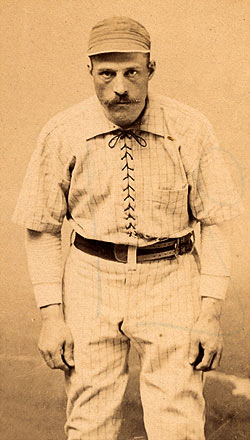We’re all prone to arguing our “side” rather than the facts and changing our opinions if our so-called enemies accept them. You see it in the minutiae of day-to-day life and you see it writ large in national policy. When President Obama relented and decided to use a health-care reform idea from the conservative Heritage Foundation (individual mandates), his counterparts branded the idea as a tool of socialism. When they got something they wanted they didn’t want it anymore. Emotion and narrative were more important than fact.
Marvin Miller, the first Major League Baseball Players Association union leader, who just passed away at 95, was no stranger to this phenomenon. When he went to court to fight for the players’ right to enjoy the same basic employment freedoms as any other American worker, team owners went ballistic. They had been in control of the game since the start, and they weren’t worried about what was right morally or for business; they just wanted to maintain that upper hand. Even if that was bad for the bottom line. Free agency and player movement, which Miller eventually won, grew fan interest, lifted attendance and TV ratings, and transformed the owners from millionaires into billionaires (or close to it). If the owners had been paying attention to facts instead of fighting for “their side,” they might have noticed this sooner.
There will be stories, no doubt, about how every modern player should attend Miller’s funeral, how they all owe him a debt. And that’s true. But every owner should be there as well. He did even more for them, though they fought him every step of the way. From Jeff Passan’s Yahoo! Sports piece about Miller’s passing:
“Over his 17 years as leader of the Major League Baseball Players Association, Miller instilled confidence in what was a fractured group of players and fear in ownership, preaching the strength of unity. During his tenure through 1982, Miller oversaw MLB’s first collective-bargaining agreement, gained free agency for players, weathered three strikes and two lockouts, and positioned the players to reap the benefits they do today, when the average major league salary is more than $3.4 million.
‘There was nothing noble about what we did,’ Miller said in a May interview with Yahoo! Sports. ‘We did what was right. That was always at the heart of it.’
Baseball’s era of labor discord has evolved into one of peace that’s now deep into its second decade.”
Tags: Jeff Passan, Marvin Miller

